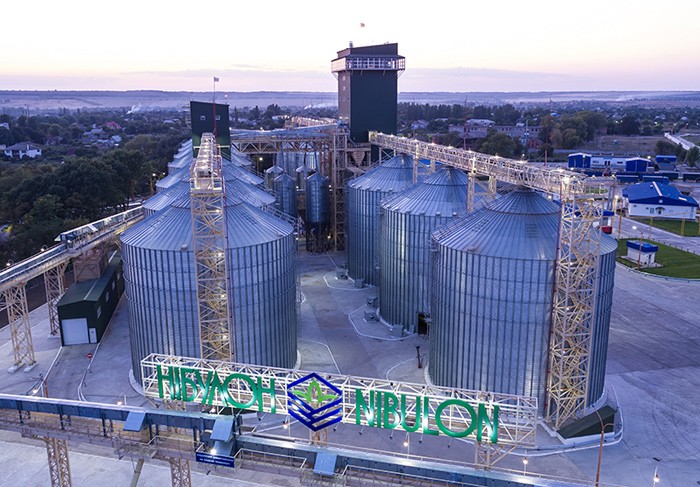Nibulon facility in Ukraine targeted in Russian attack

A Nibulon grain warehouse near Odessa, Ukraine, was damaged by a Russian drone attack on 23 August, the company said on its website on the day of the strike.
“The Bessarabska branch of Nibulon was attacked by the Russian Federation. There was minor damage to warehouses,” Nibulon said.
“Thanks to the security measures introduced at the enterprise, people were not injured. All the employees of the branch were able to hide in specially equipped (bomb shelters). As of now, the company operates as usual.”
Nibulon, one of the country’s largest grain growers and traders, has been significantly impacted by Russia’s invasion of Ukraine in February 2022, World Grain wrote on 24 August.
The company’s owner and CEO Oleksiy Vadatursky was killed on 31 July 2022 in his home during a Russian bombing of Mykolaiv. His wife, Raisa Vadatursky, who was with him, was also killed. Andriy Vadatursky succeeded his father as CEO of Nibulon.
With a turnover of approximately US$700M/year, Nibulon is one of Ukraine’s 20 largest companies and, prior to the Russian invasion, was exporting almost 1M tonnes/quarter of grain, according to the report.
Since Russia’s withdrawal on 17 July from the Black Sea Grain Initiative (BSGI) – which for nearly a year allowed safe passage of Ukrainian grain exports during the ongoing war between the two countries – it had repeatedly attacked grain infrastructure at ports on the Black Sea and along the Danube River, the report said.
In the month following its withdrawal from the BSGI, Russia has destroyed 270,000 tonnes of grain at the ports, according to Ukrainian officials quoted in the report.
Against this backdrop, AgriCensus reported on 25 August that the agriculture ministers of the five “frontier” European Union (EU) states of Bulgaria, Hungary, Poland, Romania and Slovakia were seeking to extend a ban on Ukraine grain imports until the end of this year.
The agreement was reached following a meeting on 25 August, according to a statement from the Polish government.
Transit of grains through these states was still allowed, and the five ministers also agreed that the EU should launch subsidies for grain transiting from Ukraine, AgriCensus wrote.
The European Commission (EC) agreed in May to introduce a ban on Ukrainian imports of wheat, corn, rapeseed and sunflower into the five states to protect their farmers until 15 September.
While the five states had pushed for longer, in its most recent decision on 25 July, the EC said the bloc would wait for the result of the current harvest before making further decisions, while the next EU informal meeting of agriculture ministers was due to be held on 3-5 September.
Most other EU member states were reportedly against extending the ban, AgriCensus wrote.
The five ministers also agreed to a joint demand that the EC direct funds to build infrastructure to help Ukraine transport grain and suggested the list of Ukrainian products that could not enter their markets should be “flexible”.
Polish Minister of Agricultural and Rural Development Robert Telus also presented data showing that 9M tonnes of grain had been exported from Poland since January. This could ease concerns about overly high Polish stocks after a backlog from last year’s harvest, the report said.
Read also
Wheat in Southern Brazil Impacted by Dry Weather and Frosts
Oilseed Industry. Leaders and Strategies in the Times of a Great Change
Black Sea & Danube Region: Oilseed and Vegoil Markets Within Ongoing Transfor...
Serbia. The drought will cause extremely high losses for farmers this year
2023/24 Safrinha Corn in Brazil 91% Harvested
Write to us
Our manager will contact you soon



